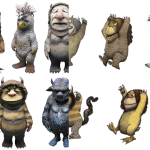In the shadow of growing political polarization and cultural unrest, the term fascisterne—Danish for “the fascists”—has reemerged in public discourse, not as a relic of 20th-century history, but as a pressing issue with modern implications. While classical fascism was once thought to have been defeated with the fall of Mussolini and Hitler, the ideology never truly vanished. Instead, it has evolved, adapted, and embedded itself in new movements, parties, and rhetoric across the globe.
This article explores the modern face of fascism—its roots, its impact on societies today, and the dangerous ways it continues to infiltrate public life under new guises.
Defining Modern Fascism
Traditional fascism was defined by authoritarian nationalism, suppression of dissent, militarism, and often, racism and xenophobia. Modern fascist movements may not always wear the same uniforms or fly the same flags, but they often uphold similar values:
-
Extreme nationalism
-
Anti-democratic tendencies
-
Vilification of minorities or outsiders
-
Rejection of intellectualism and the press
-
A desire to return to a mythical “pure” past
These ideologies are repackaged in modern branding—wrapped in populist language, digital propaganda, and political correctness designed to appeal to broader audiences without appearing overtly radical.
The Rise of Fascisterne in the 21st Century
In recent years, several countries have witnessed a resurgence of far-right movements that echo fascist principles. While not always explicitly labeling themselves as such, their actions, policies, and rhetoric mirror classical fascism. Examples include:
-
Authoritarian-leaning governments limiting judicial independence
-
The scapegoating of immigrants and refugees
-
The revival of ethnic nationalism and anti-globalist sentiment
-
Political violence against opposition voices
Social media platforms have also played a crucial role in this revival. Online echo chambers and algorithm-driven radicalization have allowed fringe ideologies to spread rapidly, often without challenge.
Cultural and Social Impact
The effects of this ideological revival are not abstract—they are deeply felt in real communities. Hate crimes have increased in areas where nationalist rhetoric dominates. Minority groups—be they ethnic, religious, or LGBTQ+—often report increased discrimination, fear, and exclusion.
Fascisterne don’t just threaten the political system; they erode trust, divide citizens, and encourage the normalization of extremism under the guise of patriotism or “tradition.”
The Role of Historical Amnesia
One of the most dangerous elements enabling the resurgence of fascist ideologies is society’s forgetfulness. As the memory of World War II and the Holocaust fades, so too does the collective understanding of how fascism takes root. Many young people today lack exposure to the lessons of history, making them more vulnerable to radical messages presented as solutions to modern problems.
This historical amnesia allows fascisterne to flourish—not as a brute force with armbands and salutes, but as a subtle, calculated political current.
Opposition and Resistance
Despite their growth, fascist movements face opposition. Human rights organizations, grassroots activists, educators, journalists, and digital watchdogs are pushing back—fact-checking, documenting hate speech, and promoting inclusive narratives.
In many parts of Europe and beyond, anti-fascist movements are gaining traction again, drawing inspiration from both historical resistance groups and modern progressive values.
Why It Matters Now
The resurgence of fascisterne is not just a European issue. It is a global phenomenon that challenges democracies, threatens civil liberties, and endangers pluralistic societies. The fight against it requires vigilance, education, and an unwavering commitment to human dignity and democratic values.
To confront fascism today means not only recognizing its presence but understanding its new forms—and naming them. Whether it marches in the streets or hides behind coded language online, fascism thrives when ignored and weakens when exposed.
Final Thoughts
The story of fascisterne is far from over. What began as an ideology born of war and discontent has morphed into a stealth force in modern politics. But with awareness, education, and active resistance, society can ensure that the darkest chapters of the past are not rewritten in the present.







